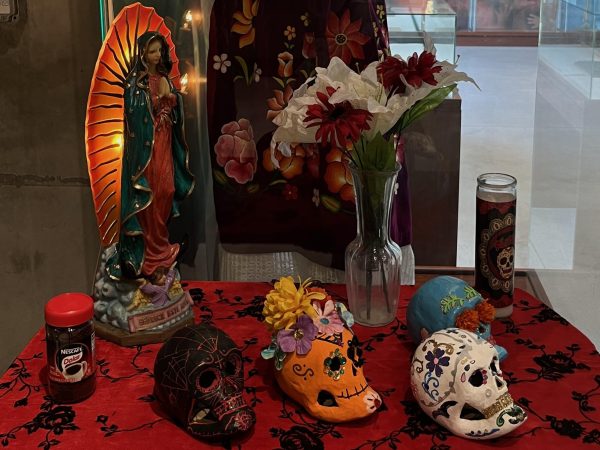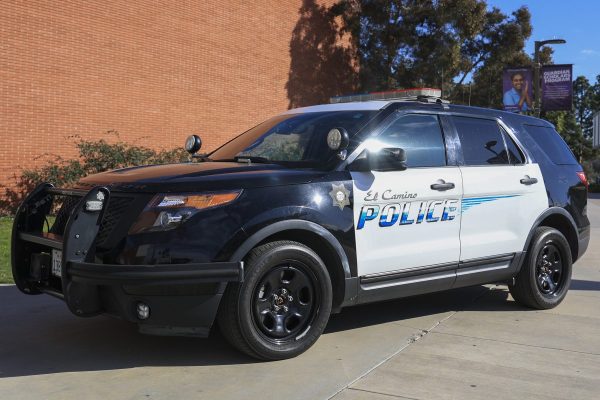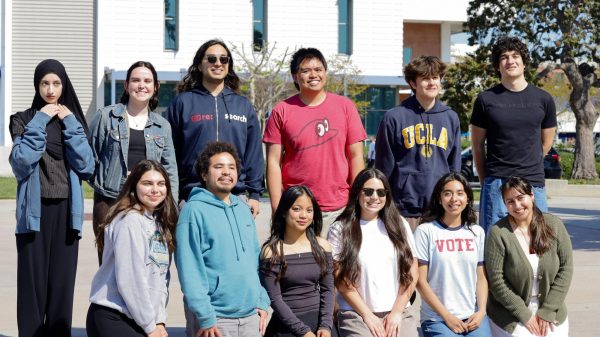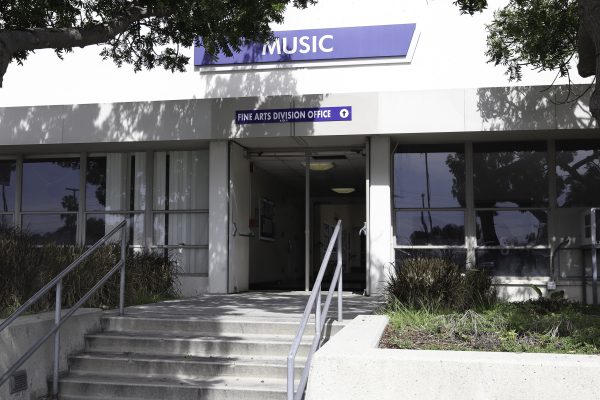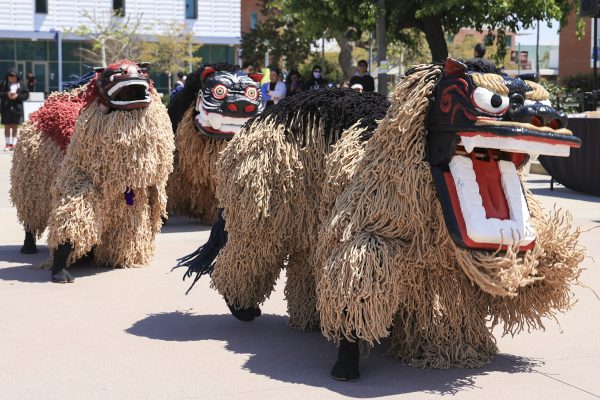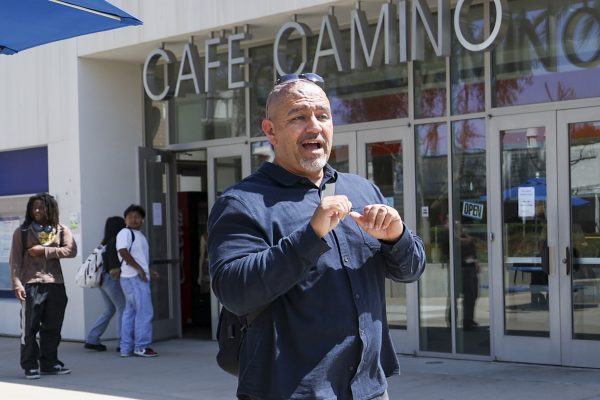Faculty and students prioritize safety as fall 2021 semester may continue virtually
Safety concerns remain relevant for both students and faculty when considering a return to in-person classes as El Camino College officials say fall 2021 may be virtual, with the exception of some lab courses.
“We’re [waiting] to see how the vaccine rollouts go over these next few months to really make a decision, I think.” Faith Adams, student trustee and history major said.
The Student Health Center (SHS) has applied for ECC to receive vaccines for students and would be happy to begin giving vaccines as soon as they’re allocated, Susan Nilles, faculty coordinator for SHS said.
Opposed to the University of California system which announced they would be returning to on-campus learning fully this fall, ECC has smaller classrooms, making it harder to accommodate students in larger class sizes while being socially-distanced.
“Since we’re not like one of these big four year universities, we don’t have any of these lecture halls that can hold all of those students that need to be there at the same time in a class,” Adams said. “[We] can’t do that in any of our regular classrooms [because] there’s no room for social distancing.”
Though safety is still a main priority for many students, some report that they are ready to resume in-person learning. However, the plan for fall is likely to remain mostly virtual, with the exception of lab classes that cannot be carried out elsewhere.
“Students don’t want to do online learning, especially those in our like, more technical fields and certificate programs,” Adams said. “I think a lot of our student body right now is still just like the early 20s, ‘I’m just out of high school’ group but I think when students do want to return to campus [they] want it to where everyone has a way to be safe still.”
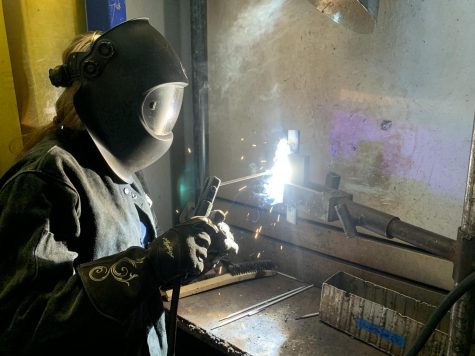
Despite wanting to return to campus, officials in the Associated Student Organization (ASO) said that when students do come back, ECC must make sure students are not forced to come back if they are uncomfortable doing so or are sick.
“As far as what I perceived, what’s going to be put into action in the future is that more classes that require in-person instruction are going to be more accessible for students,” Fernandez said. “And the classes that [don’t will] stay online to decrease the amount of students on campus, which ultimately decreases the chances of a mini-pandemic on campus.”
There are some courses happening at ECC now including welding, construction technology, nursing and other labs deemed essential, but online learning has been the only option for most students for nearly a year, and for some, learning virtually is significantly harder than being on-campus.
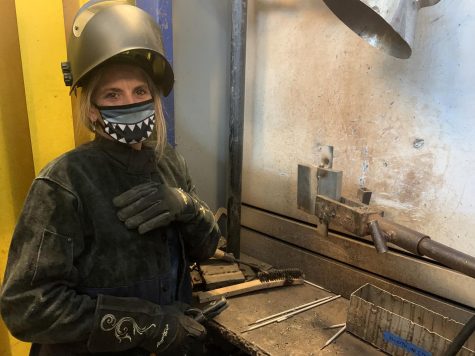
“I encourage online courses. I also think that they will be more abundant when we return on campus,” Giancarlo Fernandez, ASO president said. “But what I’m not saying is that there should be more online classes to replace in-person courses, due to the fact that even though [some students] have been doing well online, that doesn’t mean all students have been doing well.”
In some courses, faculty are also eager to return. When they had to go online suddenly last spring, they had no way to prepare for the continuity of instruction. Once campus was closed, most buildings were locked and unable to be accessed.
Kelsey Iino, faculty union representative for the ECC Federation of Teachers said that some faculty in the fine arts and career and technical education divisions were disappointed that they couldn’t use classrooms for their own instruction or to maintain machinery that has been sitting stagnant this past year.
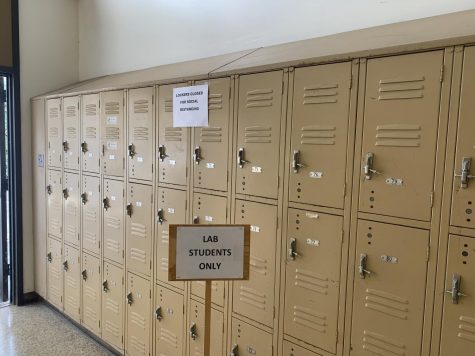
Professors at ECC also want to make sure conditions are safe before students and faculty make a full return to campus.
“I’ve heard from faculty that they want to make sure that we’ve been vaccinated, or at least have had the opportunity to be vaccinated,” Iino said. “And then, I think, we would have to re-evaluate class [capacity].”
In addition to the opportunity to be vaccinated, faculty will also likely require smaller class sizes and accessible personal protective equipment (PPE) in order to feel comfortable delivering lessons in-person.
“We would want to make sure that there was proper PPE available and accessible which I’ve heard has been an issue for the classified unit at times,” Iino said.
PPE distribution on campus used to be handled through a distribution center across from the Student Services Building, but since the COVID-19 spike on campus in January, PPE distribution has been handled by division offices.
Michael Pascual, director of purchasing and risk management at ECC and Kerri Webb, interim director of public information and government Relations at ECC both said they cannot speak for the whole district, but personally neither of them have heard of any complaints from faculty about PPE on-campus at this time.
Pascual also said that they receive requests for PPE often, and fulfill those requests promptly unless the item is a custom order.
“We’ve had the PPE distribution center in operation since the summer of last year,” Pascual said. “The days that we’re open [we] have a lot of walk-ins, we just distribute the PPE supplies to them. [For] the most part, the PPE materials that have been identified by either the Los Angeles County Department of Public Health, or [the Centers for Disease Control and Prevention], we have supplied to them.”
If ECC reopened for mostly in-person learning immediately, some faculty worry that their safety needs won’t be sufficiently met.
“We’re looking to our leaders for some sort of direction or comfort,” Iino said. “And if we are using the classified unit as our reference, I would tell you, we would not want to go back because it has not been safe for them.”


